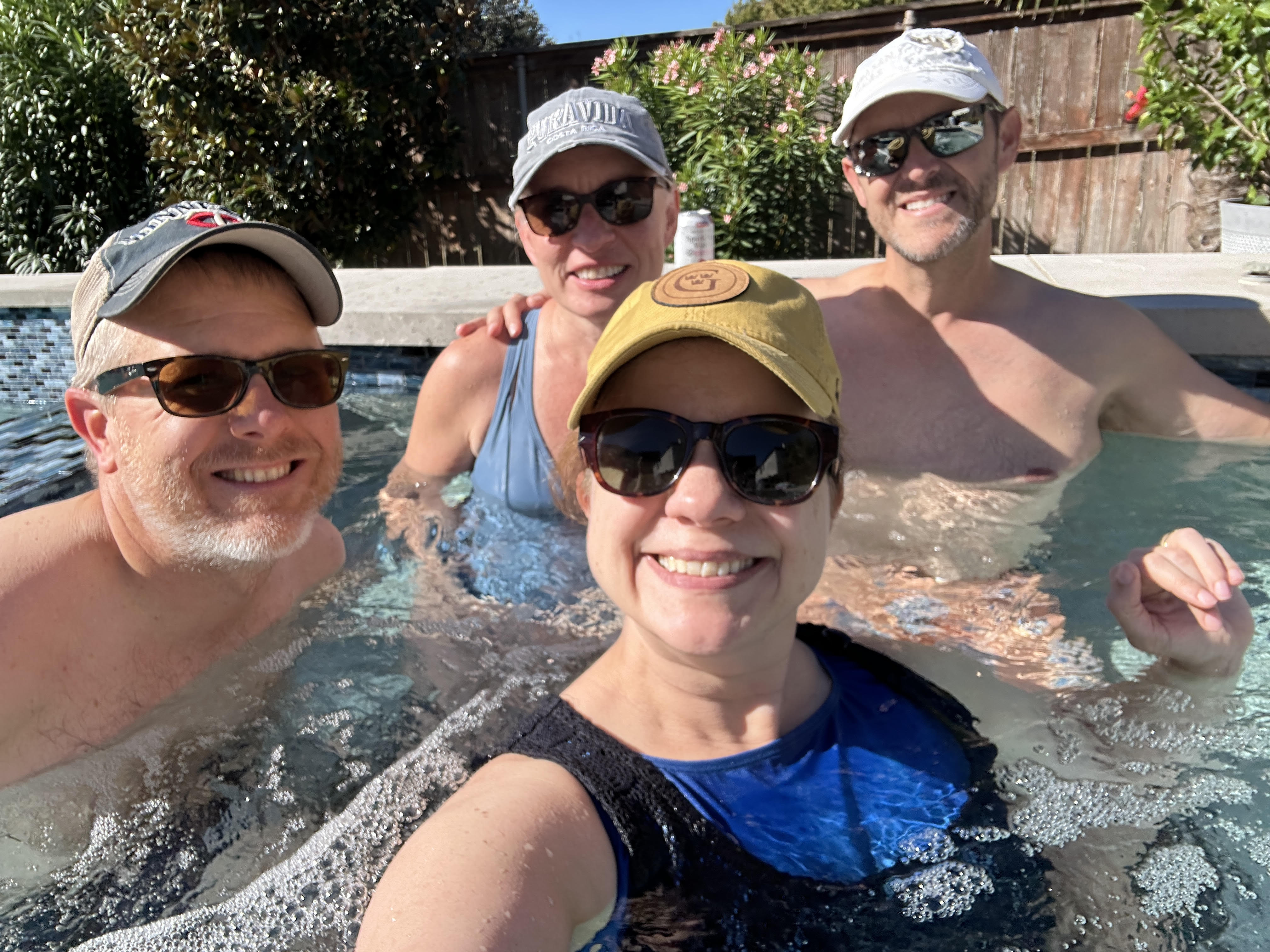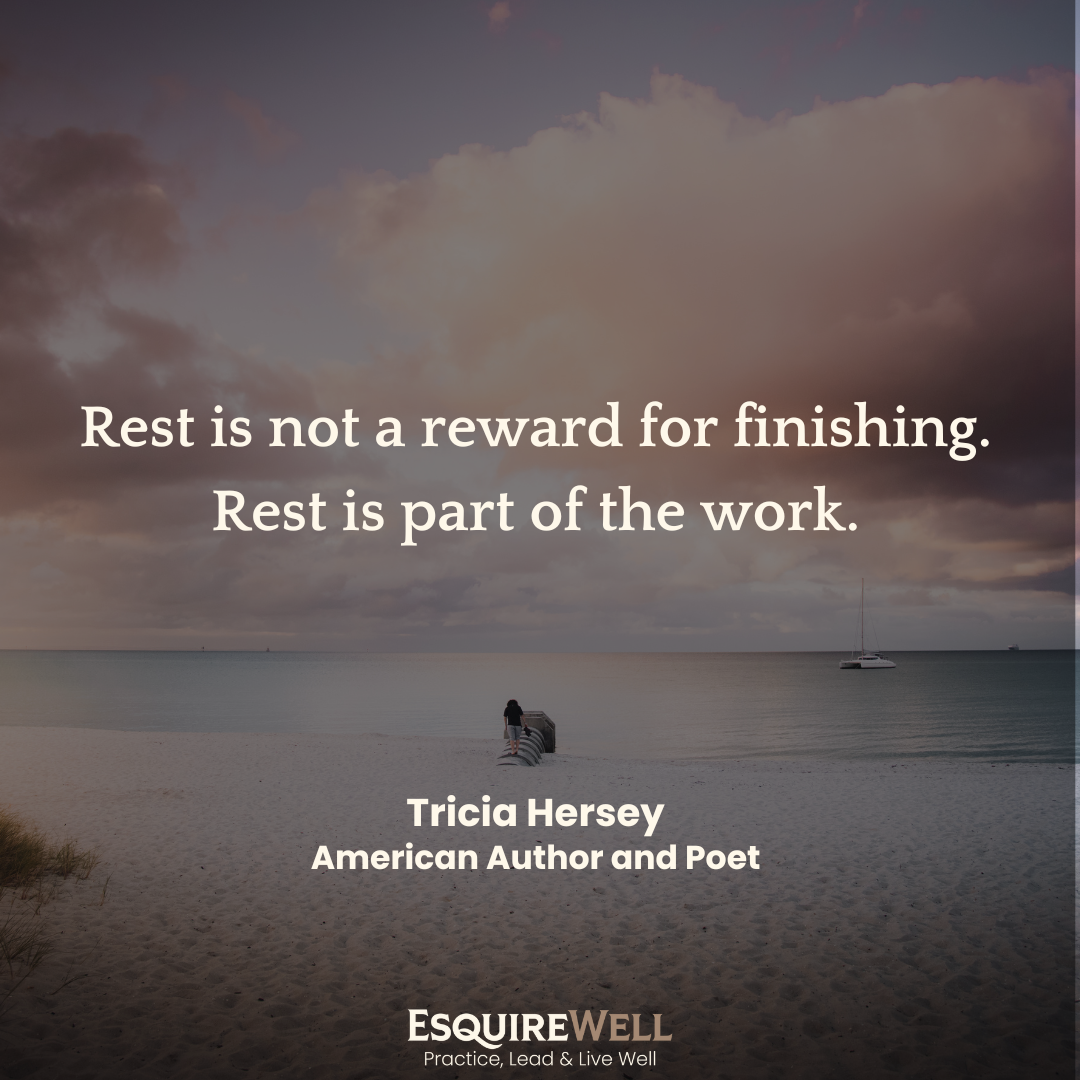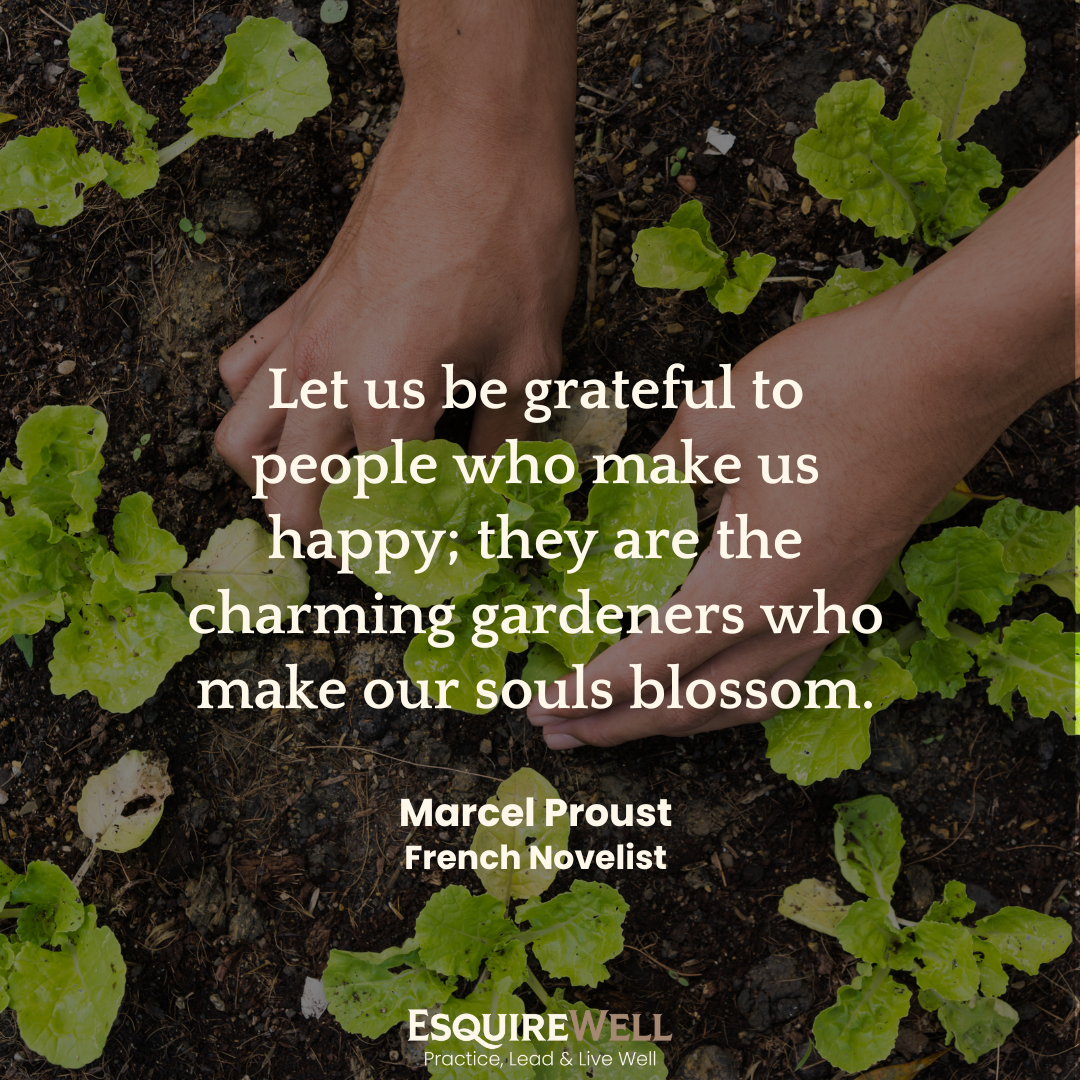How A Little Connection Goes A Long Way

My husband and I take an annual trip to Austin, Texas, to see dear college friends.
The trip was everything I needed: good food (can you ever have too many tacos?), good music, driving and walking through beautiful scenery, lots of hot tub time, and late nights filled with laughter and conversation.

No agenda, no panels, no deliverables - just space to simply be human together. I didn’t realize how much I needed that connection and restorative time away until I allowed myself to fully settle into it. I’m still feeling the benefits as Friday rolls around and my week wraps up.
We show up differently when we make (and protect) time to restore our capacity. When we don’t pause long enough to think, recover, and reconnect to what matters, our decision-making suffers, our creativity narrows, and we slip into survival mode instead of operating from clarity and intention.
Social well-being and connection aren’t luxuries. They directly impact the quality of your thinking, the way you collaborate, and your ability to manage complexity without burning out your future self.
For lawyers and legal professionals, it’s easy to equate success with output - billable hours, cases closed, emails answered.
But those in our profession who perform consistently well over time aren’t the ones who push the hardest without pause. They’re the ones who intentionally invest in connection and presence - and they see the payoff across focus, problem-solving, collaboration, and even how they show up for clients.
Here’s why connection matters for performance, wellbeing, and emotional intelligence:
- Connection boosts cognitive performance: Time spent with trusted colleagues or friends releases oxytocin and dopamine, improving focus, creativity, and decision-making.
- Connection enhances emotional intelligence: Leaders who cultivate meaningful relationships can better read, respond to, and regulate their own emotions and the emotions of those around them.
- Connection fuels capacity and impact: Sharing emotional labor and building trust strengthens your capacity to lead, advocate, and deliver under pressure.
Of all six dimensions of well-being, social well-being tends to be the one we skip past - at least that’s what I hear over and over when I present my program "The Critical Link: How Well-Being Impacts Career Fulfillment and Job Performance" and teach the law school I teach each spring called "Well-Being and Professional Formation."
Practical Ways to Use Connection to Boost Performance and Well-being This Week
Here are five small but high-impact actions to practice this week:
- Reach out intentionally:
- Why: Social support replenishes energy and sharpens focus.
- How: Send a quick message or schedule a 10-minute check-in with a colleague, mentor, or friend. No agenda, just connection.
- Engage fully in one conversation a day:
- Why: Focused presence improves empathy, clarity, and influence.
- How: Put away devices, actively listen, and notice the person, not the task.
- Receive care without apology:
- Why: Accepting support strengthens resilience and models healthy leadership.
- How: Respond with a full-hearted “thank you” when someone offers help or recognition.
- Schedule a brief social “recharge”:
- Why: Short positive interactions reset your nervous system and your leadership presence.
- How: Take a 5-minute walk, coffee, or chat with someone who restores you.
- Reflect on your support network:
- Why: Naming who uplifts you reinforces motivation, purpose, and well-being.
- How: Make a short list of people who energize, uplift, and challenge you, then connect with one intentionally this week.
When we intentionally maintain the relationships that nourish us, we don’t just feel better.
We think more clearly. We communicate more effectively. We collaborate more smoothly. We perform at a higher level with more consistency and less strain.
Stepping away from your role and to-do list to be fully human isn’t time “off” from success; it’s the foundation of sustainable performance, well-being, and emotional resilience.
So give yourself permission to be nourished by the people around you, and notice how it shifts your energy, clarity, and momentum!
Recommended Resources
[Podcast] Relationships 2.0: An Antidote to Loneliness | Hidden Brain
[Article] Why Rest Is Productive: The Science of Doing Nothing | Psychology Today
[Video] Shawn Achor: The Happy Secret to Better Work | TED Talk
[Article] The Toughest Part of Leadership: Knowing When to Stop and Recharge | Forbes



